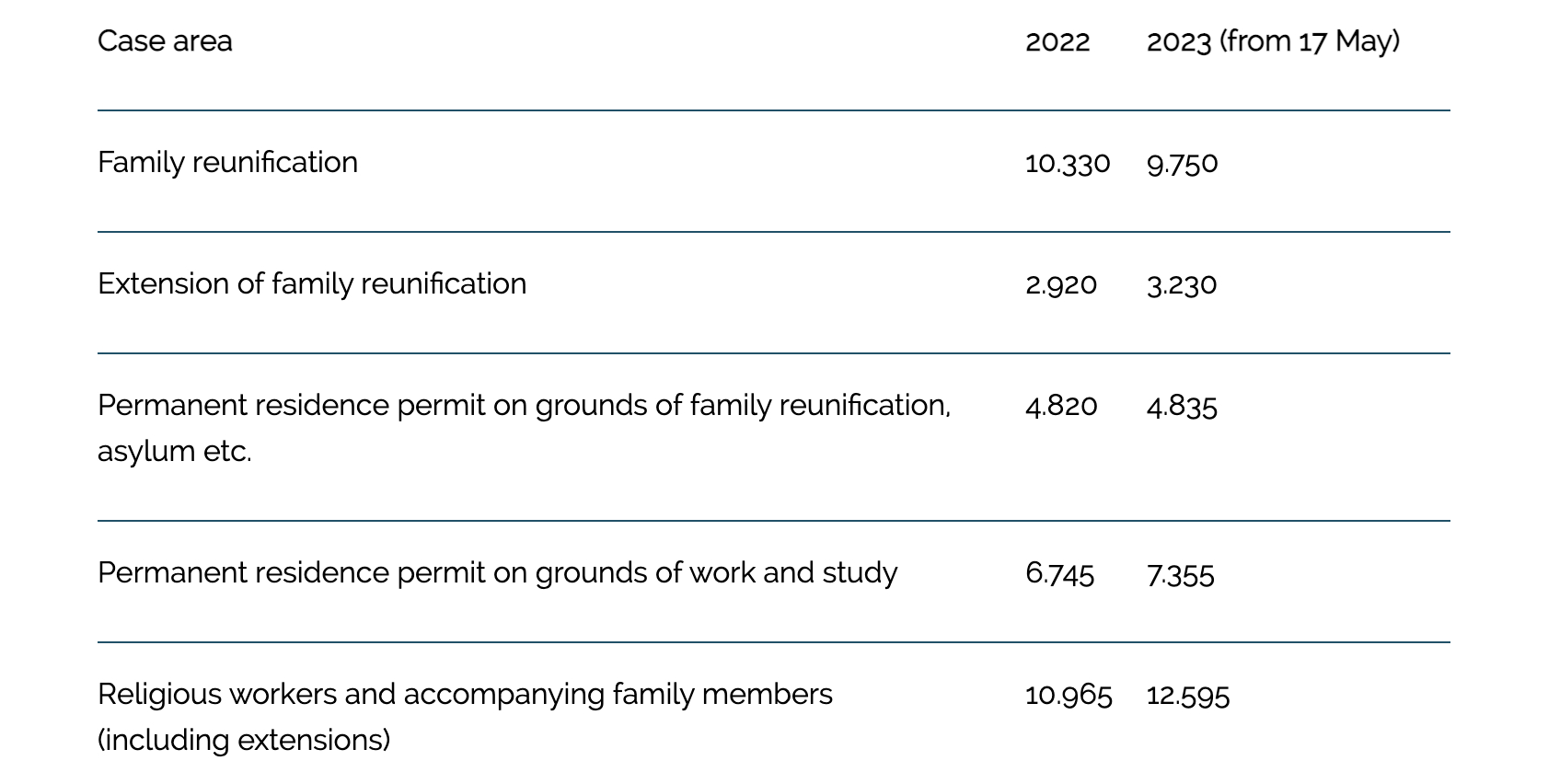Fees for applying for work and study permits, along with family reunification and permanent residence have changed after the 2023 budget was passed, the Danish Agency for International Recruitment and Integration (SIRI) said in statements on its website.
The fee for family reunification applications is reduced from 10,330 kroner to 9,750 kroner, while all other fees go up.
The new fees apply to all applications submitted from May 17th onwards. People who are not EU nationals must pay the fees when applying for residence permits in Denmark.
People who paid an application fee before May 17th but have not yet submitted the final application will need to pay the difference between the old and new fees, SIRI states. This could extend processing times and even lead to applications being rejected if the difference is not paid by the given deadline, the agency said.
The increase in application fees in itself is not unusual, since they are updated each year. However, the changes usually take effect on January 1st.
Because 2023’s budget was delayed and not adopted in parliament until May 16th, the fee regulation has taken effect several months later than usual this year.
The normal schedule for the budget was disrupted by the general election which took place on November 1st 2022.
READ ALSO: Danish parliament votes through 2023 budget three months before new proposal due
The changes to application fees can be seen below:

Graphic: SIRI screengrab

Graphic: SIRI screengrab



 Please whitelist us to continue reading.
Please whitelist us to continue reading.
Member comments